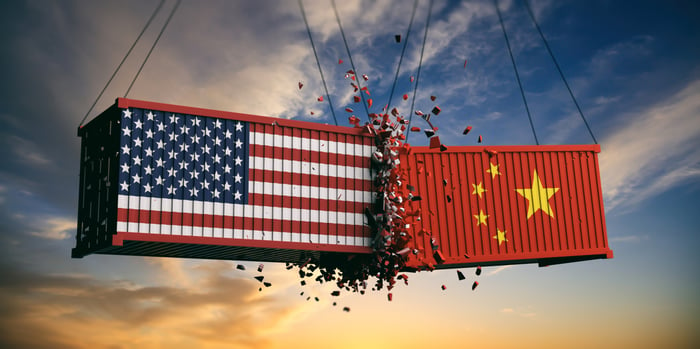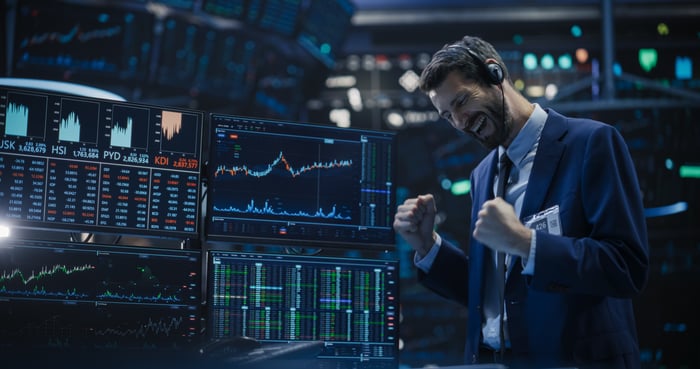Why MP Materials Rallied Today
Rare-earth elements and China are in the news today, and that’s a good thing for this strategic domestic asset.
Shares of MP Materials (MP 8.69%) rallied on Friday, up 13% as of 12:53 p.m. ET.
MP Materials has become a highly strategic company in the U.S., especially after July, when the U.S. Department of Defense directly invested $400 million in the rare-earth elements miner, while also committing to purchasing future output at certain price floors.
Rare-earth elements are critical materials used in a variety of industrial and military electronics applications, so MP Materials has since moved higher whenever geopolitical tensions rise and the subject of critical materials comes to the forefront.
That’s what happened today.

Image source: Getty Images.
Trump threatens China over new rare-earth elements restrictions
On Friday, President Trump took to his social media platform, Truth Social, to excoriate China. President Trump threatened to greatly increase the already-substantial tariffs on Chinese imports into the U.S., and even threatened to cancel his upcoming meeting with President Xi Jinping.
The bellicose reaction came as a response to China apparently instituting new export controls on rare-earth elements yesterday. On Thursday, the Chinese Ministry of Commerce said foreign countries must obtain a license to export rare-earth products sourced from China. Of note, China controls roughly 70% of global rare-earth products, especially on the refining side, so this move threatened to cut off or slow these supplies to the rest of the world.
The new tensions were a disappointing step backward from the ongoing trade talks that investors hoped were improving since April’s “Liberation Day” salvo.
Still, certain stocks benefit from geopolitical tensions, and MP Materials — along with other miners of critical minerals — rallied today in response to the back and forth. If rare-earth element imports are delayed or cut off, MP Materials’ U.S.-based rare-earth mining operations would only see that much more demand.
Plays on geopolitical tensions have rallied this year
Strategic U.S. assets, whether in rare-earth elements, uranium, semiconductors, or others, as well as the price of gold, have risen this year. This has been due to the increasingly protectionist stance of the U.S. government, and the increasing inflationary pressure resulting from U.S. attempts to wean itself off cheaper foreign materials and goods to become more self-sufficient.
These trends don’t appear to be slowing down any time soon, so while many of these stocks are up a lot and trade at very high valuations, it may be prudent for investors to secure some “strategic” U.S. companies as part of their diversified portfolios today.
Billy Duberstein and/or his clients have no position in any of the stocks mentioned. The Motley Fool recommends MP Materials. The Motley Fool has a disclosure policy.









